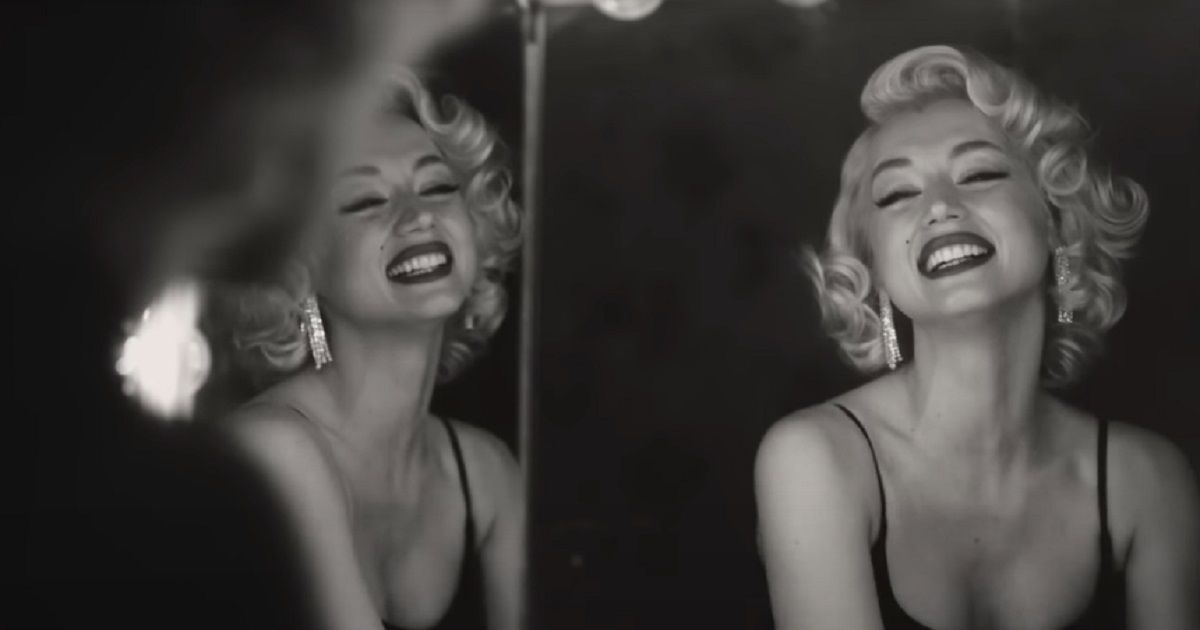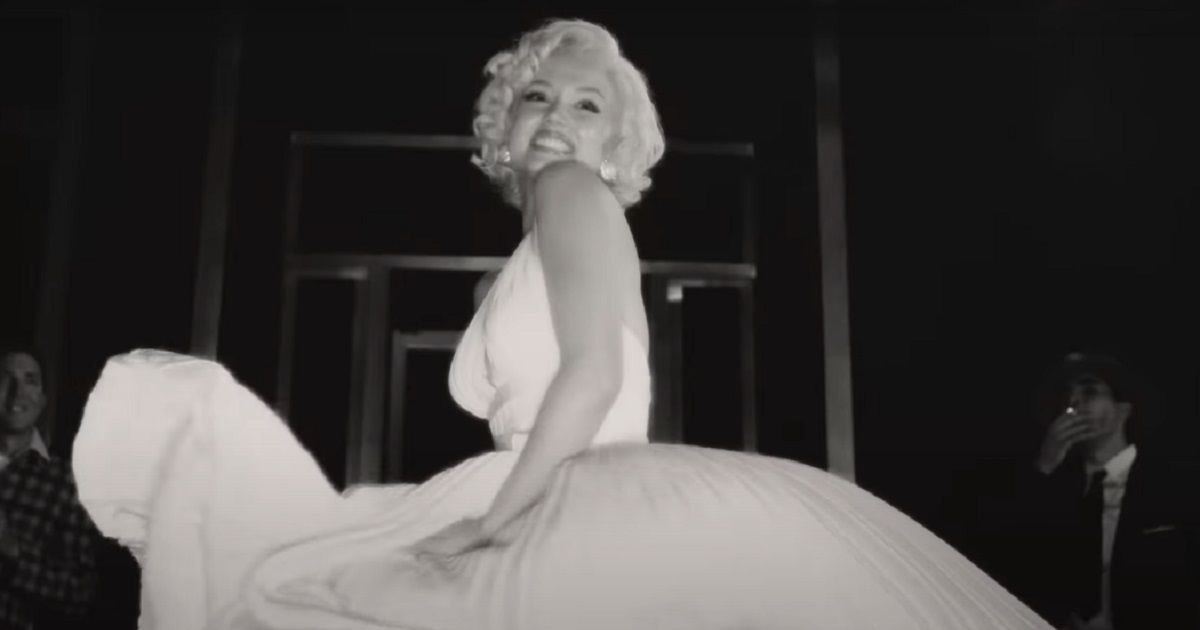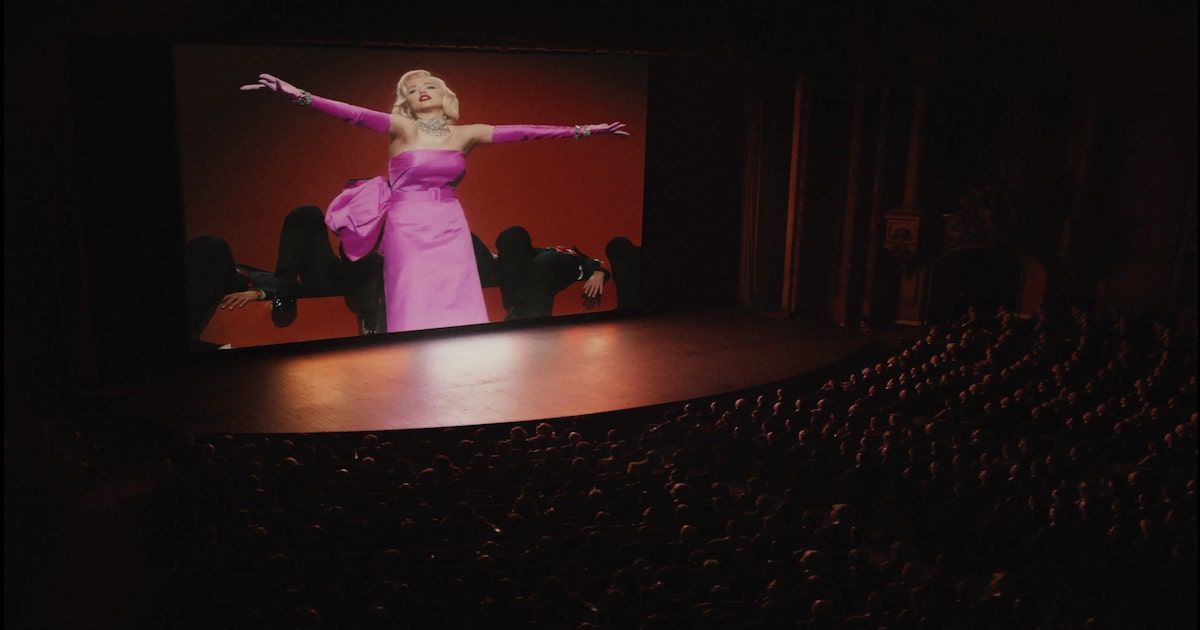Marilyn Monroe, born Norma Jeane Mortenson, somehow continues to live the most widely speculated life and embodies the most infamous, illustrious, and mysterious public persona invented in the modern era. In anticipation of Andrew Dominik's Blonde, with the titular character portrayed by the magnificent Ana de Armas, it is imperative to understand that Marilyn Monroe was, after all, invented. She was the creation of Mortenson, and she was the larger-than-life goddess of a woman built to withstand all the glory, scrutiny, and pain of a life designed to live recklessly, selflessly, boundlessly in the glamorous, endless public.
Historians of Marilyn Monroe and her most ardent enthusiasts will quickly recognize, even from Netflix's brief first look at the film, what direction it is seemingly going. In the inspiration for the film -- Joyce Carol Oates' speculative novel Blonde -- Norma Jeane Mortenson is depicted as a woman whose innocence, identity, and talent were exploited by greedy, cruel men. It expands on the interpretation that her downfall and death were caused by the betrayal of those sharks and vultures around her. It's clear from the brief trailer that this is the narrative the movie is sticking with.
From the only interaction the teaser shows us, we see that all her handlers care about is Marilyn and not so much Norma Jeane. The film's director has made no bones about the fact that the movie has something in it to offend everyone. All we need to see of this movie is one, highly stylized minute to realize that it will be a visceral, devastating journey down Joyce Carol Oates' rabbit hole and that it will indeed enlarge to unknown proportions commonplace facts, incidents, and truths about Mortenson's real life.
Below are the teaser trailer's telling tidbits.
Marilyn Monroe Was Not Norma Jeane Mortenson
Throughout the teaser, Norma Jeane Mortenson is seen sitting in front of her trifold mirror, getting her hair and makeup done for an upcoming show. She weeps desperately, praying, "Please come, do not abandon me." Her makeup assistant assures her, "She's coming. She's almost here." It's unclear at the start of the trailer who she is praying to or what for, but it's certainly not God. Her entreaties continue throughout the quick looks at the footage that the teaser allows us, until Marilyn finally shows up.
A desperate and terrified Mortenson transforms into Marilyn, who looks slyly at her reflection and slowly melts into a wide, devilish grin and laughs. In the teaser and in real life, Norma Jeane was not Marilyn, and Marilyn was not Norma Jeane. Marilyn was a persona, a concept, that Mortenson relied on like a crutch to go out there and do the work that was being asked of her. Mortenson herself couldn't face that stage, those lights, those crowds. It had to be Marilyn.
This has some real historical significance to those who know what Norma Jeane Mortenson/Marilyn Monroe's process and life were like. She could turn Marilyn on and off like a light switch. She would leave her house as Norma Jeane and be unrecognizable to the general public. At the turn of a dime, she could turn into Marilyn, and suddenly everyone around her would stop and realize who she was. She was that good, and Norma Jeane and Marilyn were that different.
Clearly, Blonde has decided to play up this division, this dichotomy, which is often speculated to have roots in Norma Jeane/Marilyn's presumed fractured mind and mental health issues. It's important to realize that this technique is something that all performers have done, to some extent, throughout human history. Norma Jeane's skill of creating and calling upon Marilyn as needed should not be treated as some form of self-harm, some crime against the individual with destructive consequences. Norma Jeane was performing every time she was seen. That's what performers do.
Examining Blonde's Creative Angle
This is where the movie needs to tread carefully, as the novel Blonde was indeed fictional, and many facets of Mortenson's life were unmarred, private, and vibrant. Sources have noted that neither Norma Jeane nor Marilyn should see a brand-new piece of cinema do to them what has been done to them throughout their lives and the decades since. The movie's identification as fictional is not sufficient since it could turn into, once again, a misleading piece of material about a real-life woman who deserves to have her true legacy honored. Fans are highly protective, as they definitely should be, and do not want to see her exploited or reduced to a mere pawn in the male-run Hollywood studio system.
Norma Jeane Mortenson was a real woman, more human and larger than Marilyn herself or her own end. She was a rights champion, she was kind-hearted, and she was strong. Though the movie has been marketed as a spiraling fever dream, hopefully, somehow, Blonde gives us both an immersive depiction of the so-called candle in the wind but also a real and accurate one that honors the woman behind the magic.



